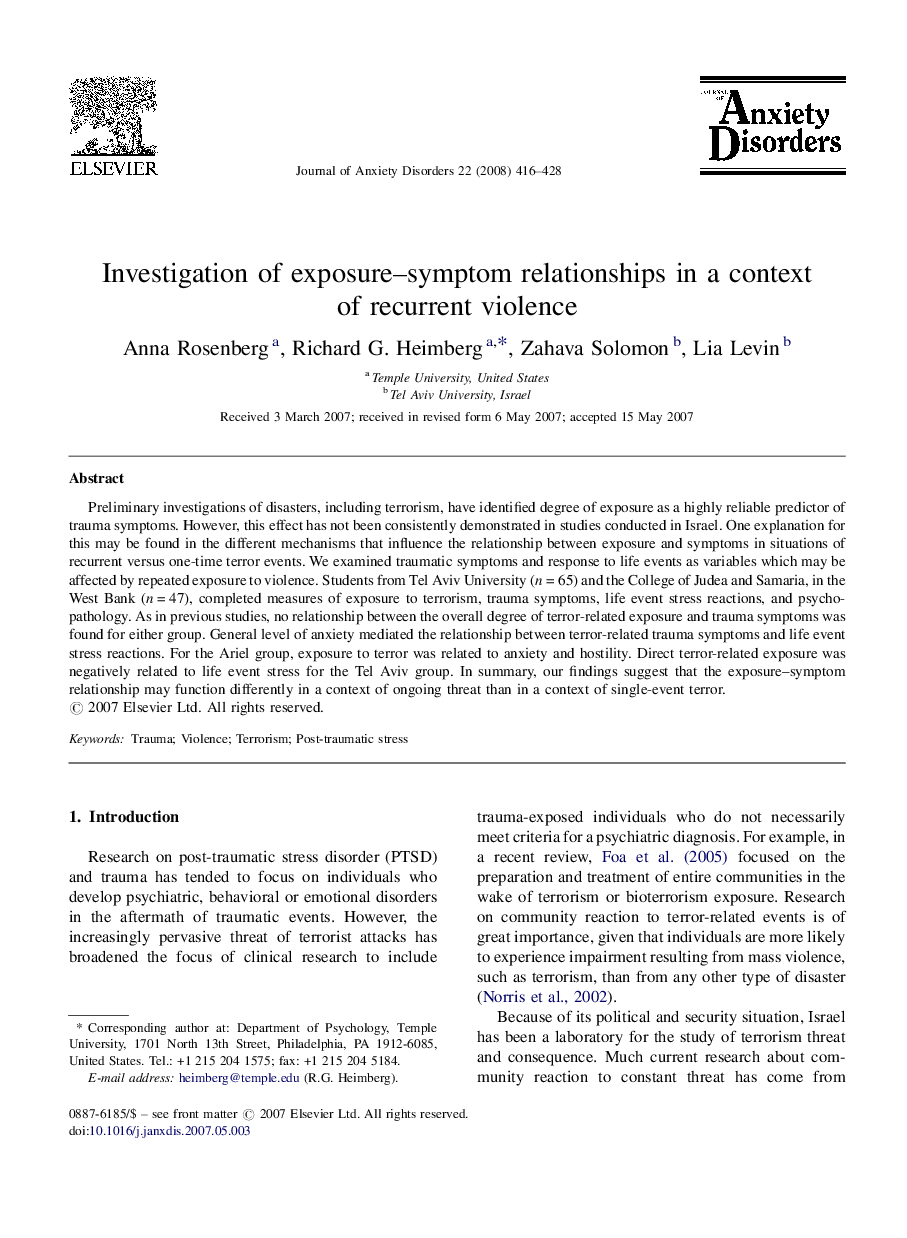| Article ID | Journal | Published Year | Pages | File Type |
|---|---|---|---|---|
| 909750 | Journal of Anxiety Disorders | 2008 | 13 Pages |
Preliminary investigations of disasters, including terrorism, have identified degree of exposure as a highly reliable predictor of trauma symptoms. However, this effect has not been consistently demonstrated in studies conducted in Israel. One explanation for this may be found in the different mechanisms that influence the relationship between exposure and symptoms in situations of recurrent versus one-time terror events. We examined traumatic symptoms and response to life events as variables which may be affected by repeated exposure to violence. Students from Tel Aviv University (n = 65) and the College of Judea and Samaria, in the West Bank (n = 47), completed measures of exposure to terrorism, trauma symptoms, life event stress reactions, and psychopathology. As in previous studies, no relationship between the overall degree of terror-related exposure and trauma symptoms was found for either group. General level of anxiety mediated the relationship between terror-related trauma symptoms and life event stress reactions. For the Ariel group, exposure to terror was related to anxiety and hostility. Direct terror-related exposure was negatively related to life event stress for the Tel Aviv group. In summary, our findings suggest that the exposure–symptom relationship may function differently in a context of ongoing threat than in a context of single-event terror.
